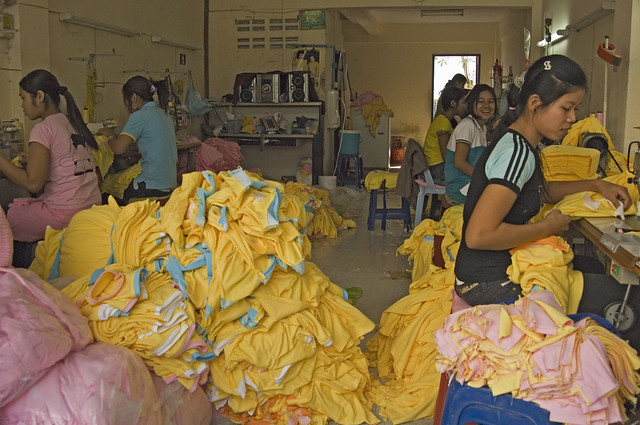Fast fashion is catching up with us: Here’s how we can change
Fast fashion brands have made big strides attempting to improve ethical standards for workers however, many brands such as Forever 21 and Anthropologie still use environmentally harmful sweatshops.
Fashion is commonly associated with self-expression and communication of identity and culture, leading it to be an enhanced concept in our society in its fundamental form. According to the Joint Economic Committee of the United States, fashion is a $1.2 trillion global industry.
In connection, an article published by the World Resources Institute mentions how the fashion industry provides a job for the 75 million people making our clothes today.
It’s no surprise that fashion production is drastically growing. This increase is associated with the rapid production of clothes following different styles, commonly known as fast fashion.
Madison Hill, a St. Edward’s sophomore, describes a scenario that most teens and young shoppers face.
“I used to go to the mall, see a Forever 21 or really, most stores — and I’d go in and see a low price and it’d be irresistible,” Hill says. “Ever since the tragic events started bringing light to the issues within the production of inexpensive clothes and documentaries came out, my eyes have been opened to the harm that is done to people.”
These drawbacks resulting from fast fashion will systematically increase as the population does, making this an unethical practice to be aware of.
Inspiration in regards to fashion can stem from many different forms and concepts. Authenticity is often interconnected with individualized style, promoting originality. Hill describes her style as casual and thrifty.
“When I go to a thrift shop, I look around until something catches my attention. When I see something I like, there’s a click in my head that tells me how I can alter it,” Hill says. “Mostly, I’ll crop shirts or cut a pair of pants into shorts and then sew a hem if I feel like it will look better.”
Altering older pieces of clothing is a method towards avoiding additional clothing purchases, a small step towards environmental sustainability.
Trade backs and downfalls are present with any business operation. Fashion provides millions of people with jobs, which connects to the concept of fast fashion, except that for the most part, the production rate and amounts change.
Fast fashion impacts our environment. According to an article from the World Resources Institute, making a pair of jeans produces as many greenhouse gases as driving a car for more than 80 miles. It is important to support both our environment and our global economic opportunities offered to many individuals over many counties.
Purchasing some clothes from local boutiques and resale stores in Austin or your local community is a simple way to subside the environmental trade backs of fashion production while also supporting local businesses. Thegoodtrade.com is a great source that lists socially conscious brands and boutiques here in Austin. It is important to evaluate the processes and effects of daily habits and personal purchases.







